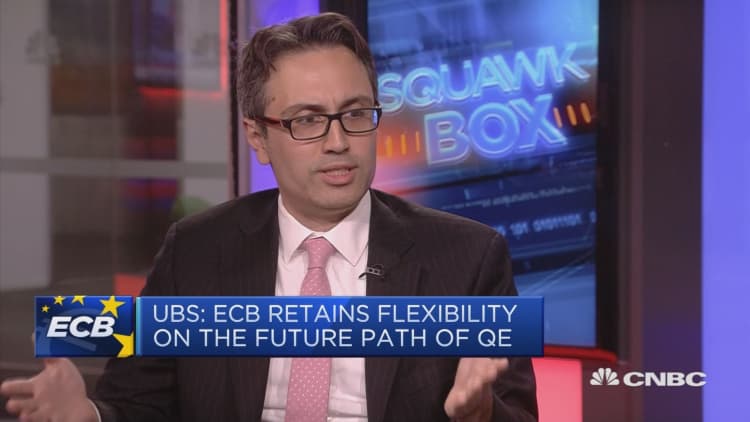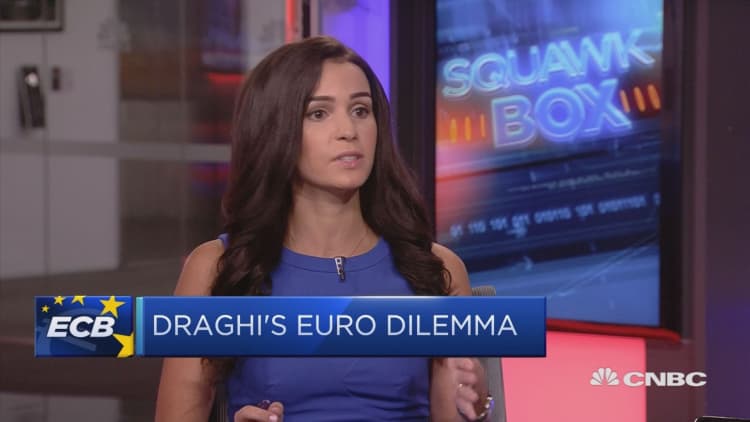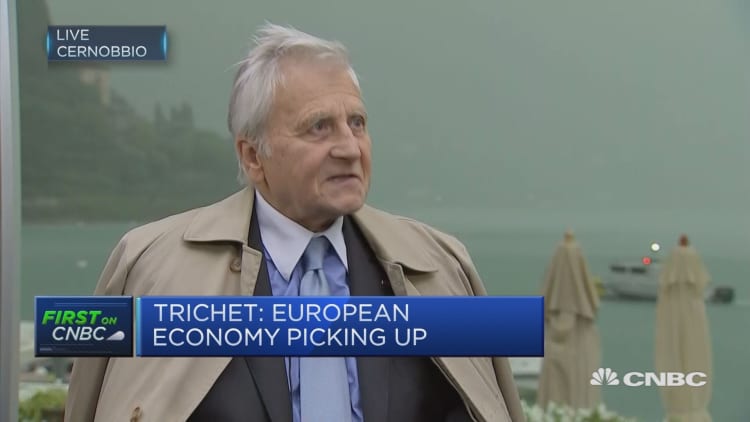
The European Central Bank (ECB) is likely to hold off on making any announcements on its stimulus program when it meets this week, instead opting to push new developments to October in the face of a strong euro.
President Mario Draghi said at the last ECB press conference that the Governing Council would discuss the future of its QE (quantitative easing) program in "the fall" - prompting many to speculate that he could detail a reduction of stimulus in September.
However, with the fall technically only starting only at the end of September, these market participants may have gotten ahead of themselves.
"The stronger euro could lead to such a heated debate that the ECB could postpone fall until the Indian summer period in late October," said Carsten Brzeski, chief economist for Germany and Austria at ING Diba, in a research note.
"Either way, the big question for this week's meeting is whether Draghi will shed some light on the ECB's game plan for tapering," he added.

The euro has appreciated by around 2.4 percent against the greenback since the last meeting of the bank in July and concerns are growing that the strong euro might dampen the recovery and weaken inflation prospects. The higher the euro, the more expensive products and services get for non-euro customers, which might affect exports from the currency union. At the same time it dampens inflation as imported goods get cheaper.
"Putting more effort into explaining why the euro is rising on it and on how the balance sheet will continue to deliver stimulus even after tapering could allow for gradual tapering," said ECB watcher Anatoli Annenkov of Societe Generale in a note.
"(The) core inflation forecast for 2019 is thus crucial," he added.
On Thursday the ECB also will publish a new round of forecasts for inflation and growth. Given the higher euro, there could be a downward correction for inflation with possible market-moving effects.

"Between the June and September projections, the euro has appreciated by some 4.2 percent, implying that the 2018 headline inflation forecast could be cut by some 0.2 percentage points to around 1.1 percent," said Annenkov.
So it will be up to ECB President Mario Draghi to explain why the ECB, despite the inflation outlook, thinks it is right to taper (gradually reduce stimulus).
A poll conducted by Reuters among 66 economists says that the majority expect the ECB to announce a scaling back of its QE program in October and to shut down the program altogether by the end of next year.
"Tapering is (almost) unavoidable. In the discussion on the game plan, let us not forget that, due to bond scarcity, some kind of tapering in 2018 is almost unavoidable," added Brzeski.


